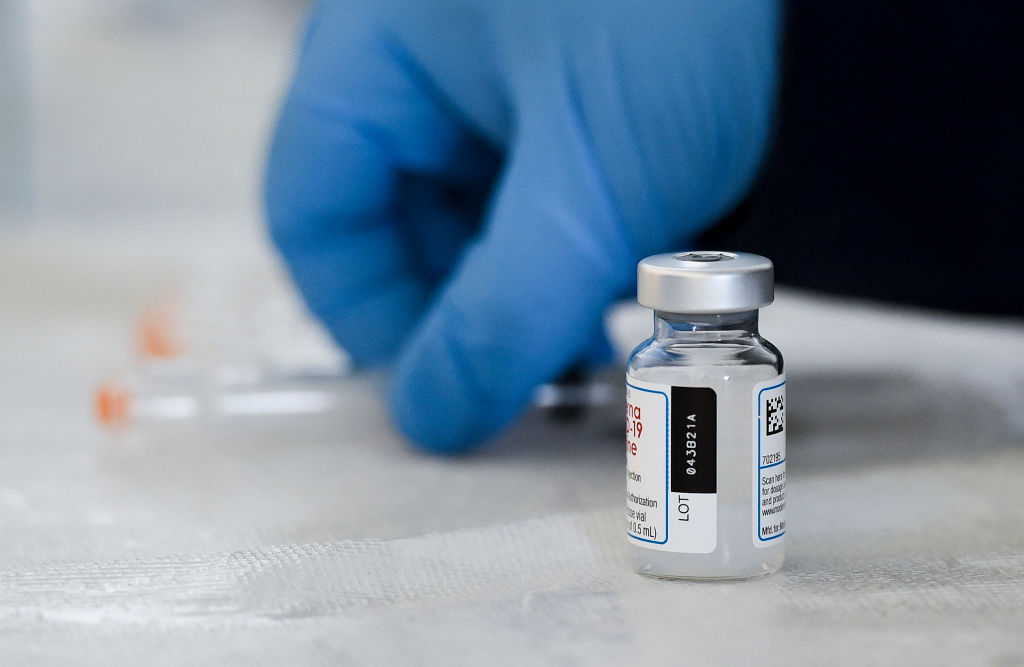If you’re one of the roughly 126 million people living in the United States who has been vaccinated against COVID-19, you’ve likely run across a list of possible side effects: headaches, chills, body aches, fevers or soreness. But what some might not have been prepared for is a change to their menstrual cycle.
So when both Dr. Katie Lee, a postdoctoral researcher at the University of Washington School of Medicine in St. Louis, and a close friend of Lee’s who got vaccinated around the same time, experienced abnormally heavy periods after getting their first doses of the Pfizer vaccine, they were surprised.
Vaccine study participants were not explicitly asked about their periods, which experts say speaks to the broader issue as to how medicine views reproductive and sexual health.
“The history of medicine in the United States really speaks to the fact that the majority of people who have been in control of how research is done, and shaping questions we are asked have been white men,” says Lee.
Women are often treated as if their concerns about their reproductive and sexual health are unimportant or “girly things,” says Dr. Joia Creer-Perry, founder and president of the National Birth Equity Collaborative, which can have deadly consequences especially for women of color. In 2018, world-famous tennis star Serena Williams told Vogue Magazine that she had to beg her medical team to take her concerns seriously when she experienced severe blood clot-related complications shortly after giving birth to her daughter. Williams’ condition could have killed her if not treated properly. The treatment of Williams, a world-class athlete with a deep understanding of her own body, opened up a deeper conversation about how birthing people are treated.
Related coverage: Around the World, Conflicting COVID-19 Vaccination Advice Puts Pregnant People At Risk
In a 2019 study published in BMC, researchers found that one in six women report experiencing mistreatment by health care providers while giving birth such as “being shouted at, scolded, or threatened; and being ignored, refused or receiving no response to requests for help.” And even when controlling for economic status, Black women in the study were significantly more likely than their white counterparts to experience mistreatment.
About 700 women die every year from pregnancy-related complications in the United States, according to the CDC, and approximately two-thirds of those deaths are considered preventable. And Black, American Indian, and Alaskan Native women are between two to three times more likely than white women to die from pregnancy-related complications, according to the CDC.
“It’s easy to just ignore women and call them hysterical… when you add on that anti-blackness you really don’t believe that person, you really don’t believe that history,” says Joia.
After speaking to friends in the medical community who also had been vaccinated and had similar experiences with their periods, Lee says she eventually spoke to Dr. Kate Clancy, a fellow researcher. Clancy took to social media in February to share her experiences and ask other menstruators about theirs. “So many different people kept responding to her post,” says Lee. Folks who were perimenopausal say they had a much stronger [period] than they were used to or folks who normally don’t have periods who reported they had spotting or a period for the first time.”
Since Clancy’s Twitter post, which has over 400 comments, major news outlets like The Lily have written about this potential side effect of the vaccine. Lee and Clancy have put together a survey, which received approximately 31,000 responses, to see just how widespread the reports of irregular periods are.
Whether we’re thinking about postmenopausal people or transgender people, Lee says that if irregular periods are a side effect, she wants those getting vaccinated to be prepared that this could happen, and believes it’s essential for people to know if it’s not a side effect so that they can pay attention to the signs their bodies might be trying to tell them. “If you suddenly got a fever, you would want to figure out what’s wrong,” Lee says. “[It’s the] same thing with your menstrual cycle. If you don’t change anything and you notice something different, for a lot of people that is a cause for concern.”
To be clear, says Lee, as of now the research doesn’t prove that any of the vaccines impact menstruation, and as she points out, periods can be affected by all types of factors such as stress or weight loss or gain, and our bodies’ immune responses. In addition, Lee says that from her research, people have only been reporting changes that impact them for a couple of cycles.
“People who get periods are encouraged to get the COVID-19 vaccines given the high risks associated with contracting, spreading, and potentially becoming very sick with the virus,” says Dr. Krishna Upadhya, a physician and vice president of quality care and health equity at Planned Parenthood Federation of America.


 Jessica Washington
Jessica Washington
